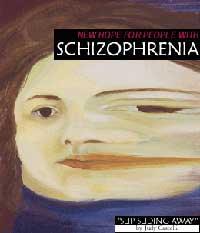World Mental Health Day
2001/04/06 Kortabarria Olabarria, Beñardo - Elhuyar Zientzia

According to the World Health Organization there are 400 million people with mental illness in the world, almost 7% of the world's population. The amount is enormous, but it must be taken into account that there, in addition to the mental disorders themselves, are counted those who have problems such as alcohol or drugs. Mental illnesses are special because they do not cause discrimination, that is to say, they affect both the rich and the poor, both children and adults, men and women, the developed countries and the countries far from development. However, even if they are not discriminatory by themselves, they generate social exclusion. For a long time it has been thought that mental illnesses were something that the imagination had created, but the truth is different. Mental illnesses are real. Thanks to new brain observation techniques, it has been discovered that many mental diseases alter the structure of the brain. Therefore, it is clear that you can make a diagnosis of mental illnesses and, of course, a treatment. Mental illnesses can have a biological, psychological or social basis. Scientists work to discover the biological origin of some brain diseases. They already know that schizophrenia and Alzheimer's diseases have a lot to do with genes, or that alcohol dependence is due to their environment and genes, and that, for example, one of the main causes of mental retardation is the lack of iodine.
Schizophrenia and depression

Although there are many mental illnesses, the set of the most common is made up of six. One of them is schizophrenia. Schizophrenia is called alteration of ideas and feelings. The personality, language, perception and thinking of the patient change and psychotic elements can often appear such as hearing voices or having rare fixed ideas. According to data, in the world there are 45 million schizophrenic patients over 18 years of age. The treatment of schizophrenia is based on drugs and psychological therapy. Along with schizophrenia, the most well-known disease that disturbs this modern society is depression. It is not easy to give detailed data on depression, as on many occasions depressions are usually very short. However, in some countries there are certain data. For example, in the United States and Brazil, 7% of the adult population suffers from depression, 1% in Germany and 4.2% in Turkey. Every year a million people in the world commit suicide and, according to experts, 60% of suicides are due to depression and schizophrenia. According to the World Health Organization, 340 million people are depressed. Depression, in short, would be the lack of desire to live. Early diagnosis is important for the cure of this disease, but there are millions of people in the world who, despite their detection, cannot receive treatment due mainly to the non-payment of drugs.
Alzheimer, epilepis and mental retardation

Alzheimer’s also takes up more and more space. Alzheimer's disease is the most widespread demential disease among older people: about half of all dementias are Alzheimer's disease. Today 11 million people in the world have Alzheimer's and, if no cure is detected in the short term, it can double in 30 years. According to all the studies that are being carried out, 10% of those over 65 years of age in the world develop Alzheimer's disease, compared with 47% of those over 85, almost half. The disease was identified by researcher Alois Alzheimer in 1907 and, from a scientific point of view, is a degenerative and progressive brain dementia. The immediate loss of memory is due to the deterioration of the neurons of the memory and the neurons responsible for the ability to think, with which the communication between the neurons is interrupted. Currently there is no curative treatment. Epilepsy is not as prestigious as the previous ones, but it can be serious. It is a brain disease that causes repetitive crises. These crises can be from the loss of age to violent seizures. The causes of epilepsy can be multiple, mental traumatisms, infections, parasitosis, alcohol, etc. It is estimated that there are 45 million epileptics in the world, and there are five times more in undeveloped countries than in developed countries. Therefore, most epileptics do not receive treatment, although the treatment is simple: to take cheap anti-epileptic drugs. Mental retardation is part of the most important set of mental illnesses. According to the World Health Organization, mental retardation is the complete non-development of intelligence. In this case, the percentage of patients varies from country to country. According to the data provided by this organization, 4.6% of the population under the age of 18 suffers from mental retardation in the non-developed countries, while only 2.5% in developed countries. The difference in data indicates that the adoption of adequate measures with children would reduce the number of patients in the world.
Also alcohol
In this quick review of the most important mental illnesses we have left for the end alcohol addiction. And the data is terrifying: 140 million people in the world are considered alcohol-dependent, 2 or 3 of every 100 people, of whom 80% do not receive any treatment, while another 400 million say they drink excess. Another couple of data is that alcohol is responsible for 1.5% of the total deaths and the cost of alcohol-induced diseases in many countries reaches 2.7% of the gross domestic product, that is, almost 3 out of 100 pesetas.

Gai honi buruzko eduki gehiago
Elhuyarrek garatutako teknologia





